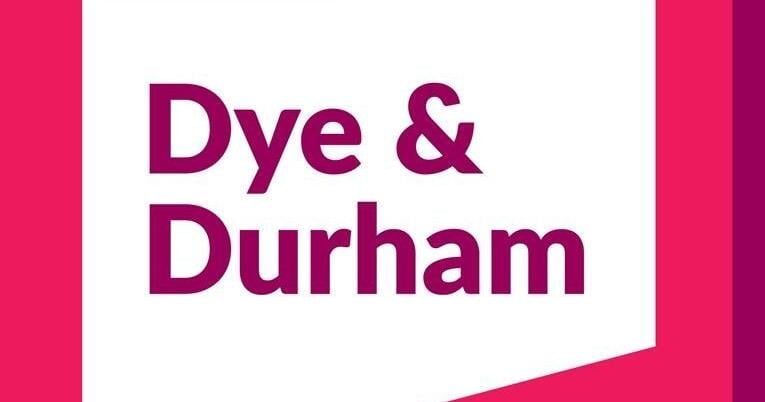TORONTO – Ontario is revamping its approach to the drug crisis by banning consumption sites that are close to schools, introducing a number of treatment hubs and ending the practice of safer supply, Health Minister Sylvia Jones said Tuesday.
The province will shut down 10 consumption and treatment sites – more than half of the provincially funded locations – and critics warned the fundamental shift will lead to more drug poisoning deaths.
Jones denied that the changes would lead to harm.
“People are not going to die. They are going to get access to treatment,” Jones said.
“I do not call watching someone inject an illicit drug to be health care in the province of Ontario. We need to do better, and we can do better.”
The province will introduce legislation in the fall that would prohibit municipalities or organizations from launching new consumption sites or participating in the federal government’s safer supply program that sees prescription medication given to people instead of drugs bought off the street.
Jones said community safety is behind her decisions.
“We need to do more to protect public safety, especially for young school children, while helping people get the treatment they need, which is why we’re taking the next step to expand access to a broad range of treatment and recovery services, while keeping kids and communities safe,” she said.
The announcement follows two reviews of the sites that the government ordered in the wake of the killing of a Toronto woman, who was hit by a stray bullet from a shooting near one of the sites.
Karolina Huebner-Makurat had been walking through her southeast Toronto neighbourhood of Leslieville shortly after noon on July 7, 2023, when she was shot as a fight broke out between three alleged drug dealers.
The 10 sites that will have to stop offering supervised consumption no later than March 31, 2025 due to the new rules include five in Toronto, and one each in Ottawa, Kitchener, Thunder Bay, Hamilton and Guelph.
Nine of those sites are provincially funded and will be prioritized to receive funding under the new system so long as they give up supervised consumption services, Jones said.
The province will instead create 19 new “homelessness and addiction recovery treatment hubs” plus 375 highly supportive housing units at a cost of $378 million.
Those transitions would move quickly, she said.
The province said crime around these sites is “significantly higher” compared to surrounding neighbourhoods. It said reports of assaults are up 113 per cent and robberies up 97 per cent in neighbourhoods near the sites in Toronto compared to the rest of the city.
The new sites will not offer clean needles, Jones said.
A spokesperson for Toronto Mayor Olivia Chow said she is concerned the closures will lead to “increased overdose deaths, greater strain on first responders and emergency rooms, and more public drug consumption.”
A policy paper on opioid use from the Association of Municipalities of Ontario had the municipalities calling for a more collaborative approach and said the consumption sites save lives.
“A recent study of supervised consumption sites in Toronto found that a city-wide reduction in overdose mortality rate of 42 per cent after the implementation of supervised consumption sites,” the association wrote.
The South Riverdale Community Health Centre, near where Huebner-Makurat was shot, is among those that will no longer be able to offer supervised consumption and said it is reviewing the province’s decision.
“Our focus is on ensuring we have a plan in place for providing continued compassionate care to the clients we serve, support for our dedicated staff and dialogue with our neighbours,” said Gabriella Skubincan, a spokesperson for the health centre.
One site now set for closure in Ottawa was not consulted on the move.
“This will have devastating consequences for our community,” said Suzanne Obiorah, executive director of Somerset West Community Health Centre.
The Ford government introduced the consumption and treatment services model in 2018, saying it would focus on connecting people to treatment, rather than the previous supervised consumption model.
At that time, the province put in place a cap of 21 such sites in the province, but has only funded 17. There are other supervised consumption sites around the province that have received federal approval but no provincial funding, and two of them in northern Ontario recently closed due to a lack of funds.
Tuesday’s news from the government angered harm reduction workers, including one who works at one of the sites slated for closure.
“My heart sunk,” said Hannah Stahl, a registered nurse at one of the sites and co-lead of the Street Nurses Network. “My clients are going to be left in the lurch.”
She said she is able to provide health care, often daily, to her clients who otherwise are fearful of the health-care system. Stahl said she helps people get tested for various diseases and connects patients to counselling, helps them get on a list for housing or helps fill out forms to get identification.
“When people fall through the cracks of the system, this is what caught them,” she said.
But the pending closures are welcome to those living near South Riverdale Community Health Centre, where Huebner-Makurat was shot, said Derek Finkle.
He said he “completely agrees” with the province’s new approach to keep the sites away from schools.
Finkle, who lives across the street from the site and is a journalist who has written about the issue, said he has seen open drug use, fights, drug deals and tons of used needles. There are two schools nearby and six daycares, he said.
“One inevitable consequence of these sites is that it draws a number of drug dealers, some of whom carry guns and some of whom get into fights and then kill innocent passersby,” he said.
“It makes no sense that South Riverdale exists at an address that the province would prohibit from having a license to be a cannabis dispensary.”
Provincial regulations state cannabis shops must be no closer than 150 metres to a school.
Opioid deaths surged during the COVID-19 pandemic. In 2021, the mortality rate for opioid toxicity hit its peak of 19.3 deaths per 100,000 people, data from the Office of the Chief Coroner shows. That year, 2,858 people died from opioids, the vast majority of which contained fentanyl, a particularly potent opioid.
People dying from opioids are also increasingly found with benzodiazepines, cocaine, methamphetamine. And nearly five per cent of deaths in 2024 thus far contain xylazine, commonly used by veterinarians as a tranquilizer.
That mortality rate dropped to 17.5 deaths per 100,000 people, or 2,593 people, in 2023. Those numbers are significantly worse than pre-pandemic rates that saw 10.7 deaths, or 1,559 people, per 100,000, the coroner’s data shows.
The majority of opioid toxicity deaths, nearly 70 per cent, happen in private homes, the coroner’s data shows.
More than 600 people died of opioid toxicity in Ontario in the first quarter of this year, which is a slight drop from the same period in 2023.
For Jen la Fauci Gordon, a harm reduction worker who has been saved several times from overdoses at a supervised site, the government’s changes appear ideologically driven and will be deadly.
“It’s so callow to see those of us who quite often have the least political capital being used to score the easiest political points,” she said. “It’s disgusting.”
This report by The Canadian Press was first published Aug. 20, 2024.

























